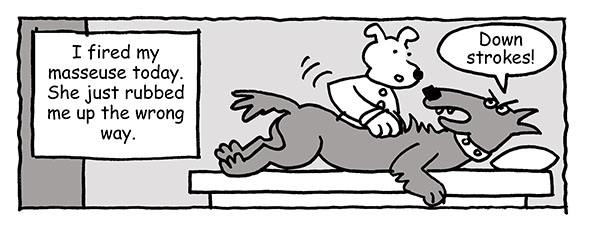
British people have been described as a nation of animal lovers. In 2012, it is estimated that 48% of UK households have at least one pet. This is equivalent of 13 million households. About 23% of homes have at least one dog and 19% have at least one cat. That's a total of 16 million cats and dogs. Do you have a pet? How do you feel about keeping animals?
Read through these 13 animal sentences and then answer the related questions below:
Another look at a couple of words that English learners often confuse. Do you know the difference in use between dead and died?
Dead is an adjective. It means no longer alive. For example:
There's a dead mouse in the garden.
My grandfather has been dead for ten years.
The pet fish I bought my daughter last week is already dead.
Simple Questions are questions that can be answered with Yes or No.
For example:
Are you happy?
The form of this question is: be + subject + adjective
The adjective can be changed to different words but the be + subject stays the same:
Is she here?
Am I right?
Is James coming with us?
Was David listening?
We see these two words misspelled ALL the time especially on Twitter and Facebook.
Let's take a look at the correct use of these words.
Lose: is a present tense verb. It has two meanings:
i) To have lost something. You no longer know where it is:
"Don't lose your bag. Be careful where you put it."
ii) To be defeated:
"I always lose when I play tennis against my brother."
The past form of both meanings is lost.
"I lost my bag!"
Being able to understand long written texts is an important skill if you want to take an IELTS course or any type of English language proficiency test. Carefully read through this article and answer the 8 related questions. Let us know if you have any questions about what you read.
What's the difference between have to, supposed to and ought to?
When you must do something, you have to do it. It is used for a situation that has no choice. Have to is used for obligations.
"Students must wear their uniforms to school or they will be sent home."
"In England, you have to drive on the left."

When we rub someone up the wrong way, we annoy, anger or irritate them. When people rub us up the wrong way, they usually do not know they are doing something wrong.
"My young brother rubs me up the wrong way. He is so annoying."
"The way he talks really rubs me up the wrong way."
When we hear the word like we think about things we enjoy, "I like English." There are other uses of the word. How familiar are you with these?
"What's she like?" - 'What...like?' is used when asking about someone's personality or character. You could answer with:
She is funny/patient/outgoing.
Have you ever felt that someone is telling you something that is not true? Perhaps they are trying to lie to you. In that case, you smell a rat!
When we feel that something someone or something is not honest, we smell a rat.
"I smell a rat. If John was off from work all week because he was sick, why has he got a suntan?"
We use use much and many in questions and negative sentences. They both show an amount of something.
We use much with singular nouns.
Question: "How much petrol is in the car?"
Negative clause: "We don't have much time left."